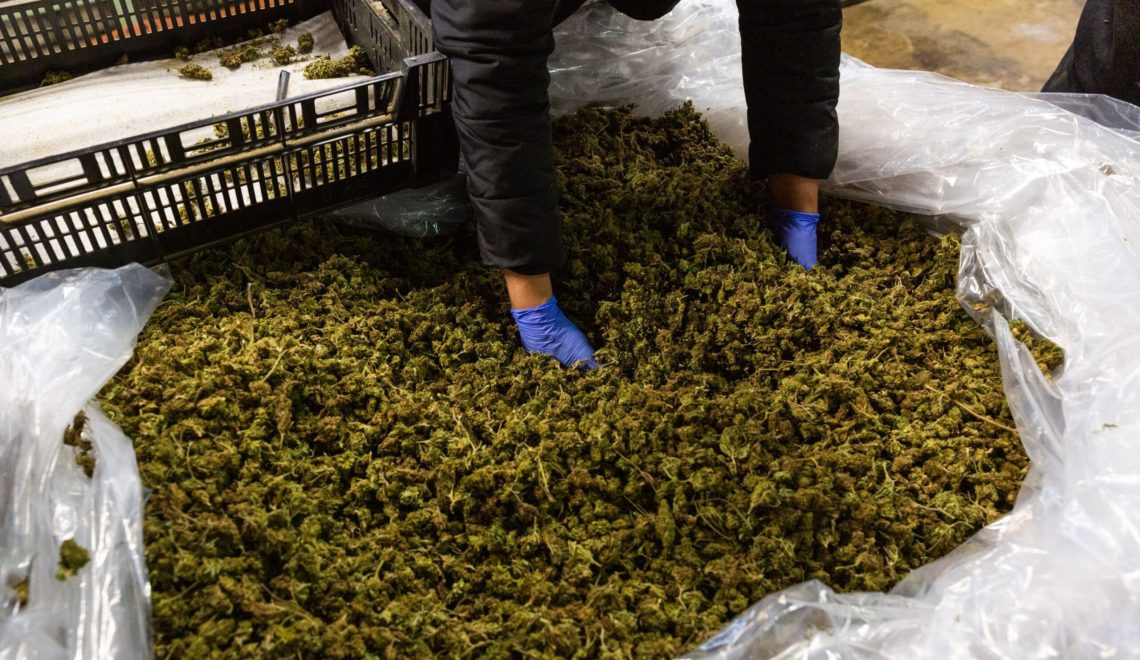Crafting High-Quality Delta-8 Products: A Comprehensive Guide to Delta-8 THC Manufacturing

Delta-8 THC, a psychoactive compound found in cannabis plants, has gained popularity in recent years due to its similarity to Delta-9 THC, the more well-known psychoactive component of cannabis. Delta-8 THC differs from Delta-9 THC by the placement of a double bond in its molecular structure, and this small difference results in slightly different properties. This comprehensive guide will explore the various aspects of Delta-8 THC, including its chemistry, production methods, quality control and testing, products, potential health benefits and risks, marketing and distribution, and frequently asked questions.
Delta 8 Chemistry
Delta-8 THC, or delta-8-tetrahydrocannabinol, interacts with the endocannabinoid system in the body by binding to CB1 receptors in the brain and central nervous system. This interaction produces the compound’s psychoactive effects. Delta-8 THC is also known to have a high affinity for binding with other receptors in the body, such as those involved in pain perception and inflammation.
How to Make Tetrahydrocannabinol?
Tetrahydrocannabinol (THC) is a psychoactive cannabinoid that is naturally produced by the cannabis plant. It can also be synthesized artificially in a laboratory setting. However, the process of producing THC artificially can be complicated and requires specialized equipment and knowledge.
Comparison of Delta 8 and CBD Manufacturing
While both Delta-8 THC and CBD are compounds derived from the cannabis plant, the manufacturing processes for these two compounds are quite different. The manufacturing of Delta-8 THC involves the conversion of CBD or other cannabinoids into Delta-8 THC using various methods, such as isomerization or extraction. In contrast, CBD manufacturing typically involves the use of either CO2 or ethanol extraction to isolate the compound from the plant material.
Production Methods for Delta-8 THC
There are several production methods for Delta-8 THC, including extraction from hemp or marijuana, synthesis, and isomerization. Each production method has its own pros and cons, including cost, efficiency, and environmental impact. Consumers should be aware of the production method used when purchasing Delta-8 THC products.
Quality Control and Testing
Quality control and testing are crucial for ensuring the safety and efficacy of Delta-8 THC products. Compliance with regulatory standards is also important. Best practices for quality control and testing include regular product testing, adherence to good manufacturing practices (GMPs), and transparency in labeling and marketing.
Delta-8 THC Products
Delta-8 THC products come in a variety of forms, including edibles, tinctures, vape cartridges, and topicals. Consumers should consider factors such as potency, dosage, and delivery method when choosing a product.
Potential Health Benefits and Risks
Delta-8 THC has been touted as having potential health benefits, including pain relief, reduction of anxiety and depression, and stimulation of appetite. However, like Delta-9 THC, Delta-8 THC may have potential risks and side effects. Higher doses may cause more severe side effects such as anxiety, paranoia, and hallucinations. Delta-8 THC may also cause impairment, and users should avoid driving or operating heavy machinery while under its influence.
Legal and Ethical Considerations
Legal and ethical considerations surrounding Delta-8 THC are still evolving, and users should ensure they are complying with local and federal laws. Some states have banned Delta-8 THC, while others have allowed it to be sold as long as it meets certain regulatory requirements.
Marketing and Distribution
Marketing and distribution of Delta-8 THC products are still in their infancy. To ensure legal compliance, companies should ensure they are following local and federal laws regarding advertising and distribution. They should also ensure they are meeting regulatory requirements and following best practices for quality control and testing.
Conclusion
Delta-8 THC manufacturers should focus on quality and safety, following best practices in all aspects of production, testing, and distribution. By doing so, they can provide high-quality Delta-8 THC products to consumers while contributing to the growth of the industry.
In conclusion, Delta-8 THC offers a unique alternative to Delta-9 THC, with slightly different properties and potential health benefits. However, it is important for consumers to be aware of the production methods used and potential risks and side effects. With careful attention to quality control and testing, companies can provide safe and effective Delta-8 THC products to consumers. As the industry continues to evolve and regulatory considerations become clearer, the marketing and distribution of Delta-8 THC products will likely become more established.




